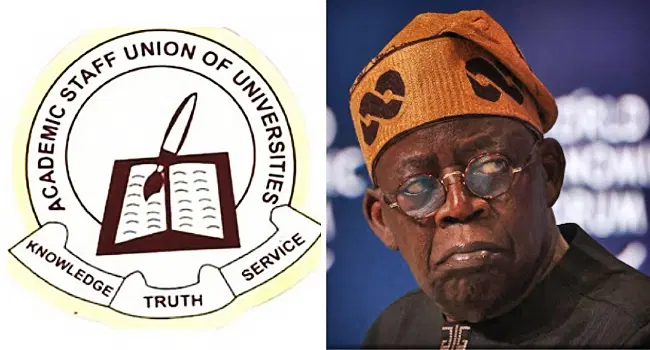Education
ASUU Rejects FG’s 35% Salary Increase, Calls Offer ‘Wretched’ and Threatens Indefinite Strike
The Academic Staff Union of Universities (ASUU) has dismissed the federal government’s proposed 35% salary increase for lecturers.

- The Academic Staff Union of Universities (ASUU) has dismissed the federal government’s proposed 35% salary increase for lecturers, describing it as inadequate, unrealistic, and reflective of the long-standing underfunding of Nigeria’s education sector.
The Academic Staff Union of Universities (ASUU) has expressed strong dissatisfaction with the federal government’s recent proposal to increase university lecturers’ salaries by 35%.
According to ASUU leaders, the increment is grossly insufficient and highlights a deeper crisis of chronic underfunding in Nigeria’s education sector.
Speaking at a press briefing on Tuesday at the Lagos State University of Education (LASUED), the Lagos Zonal Coordinator of ASUU, Prof. Adesola Nassir, described the government’s proposal as “wretched,” insisting that it would still leave Nigerian academics among the lowest-paid on the African continent.
He noted that despite the proposed raise, the current salary structure for academic staff remains far below what is needed to maintain a reasonable standard of living.

“The recent offer of a 35% increase in salaries is not only unscientific but will still result in Nigeria’s academics being poorly compensated compared to their counterparts in other countries,” Nassir said.
He stressed that any meaningful salary increment must be substantial enough to reverse the effects of years of neglect and worsening economic conditions.
Drawing comparisons, Nassir explained that when the 2009 agreement was signed, a professor earned the equivalent of $3,000 monthly.
“Today, that figure has plummeted to roughly $400. Even with this 35% increase, a professor’s salary will still not reach one million naira, and after taxes, it drops further to around ₦700,000,” he noted.
DON’T MISS: NYSC Begins Physical Verification for Foreign-Trained Graduates, Releases List of Centres, Requirements
He argued that this “pitiful remuneration” has fueled brain drain and contributed to the declining quality of education in Nigeria.
ASUU also raised alarm over the stagnation of education funding in the country.
Nassir lamented that Nigeria’s investment in education has consistently remained below 10% for more than a decade, with current allocations falling below 1% of the nation’s GDP.
He added that other African countries allocate far more, citing Egypt at 2% and South Africa at 6% of GDP.

“The funding crisis in education is not new, but it has reached a critical level. The government must confront the perilous consequences of its neglect and prioritise the future of our children,” Nassir urged.
The union called on Nigerians who care about the nation’s future to support ASUU’s push for a significant increase in education funding.
As negotiations with the federal government continue, ASUU warned that without firm commitments to address these issues, the union may embark on an indefinite strike.
“If the federal government does not adhere to the agreements made in 2009, a miracle will be needed to avoid a complete shutdown of public universities across the country,” Nassir warned.






















